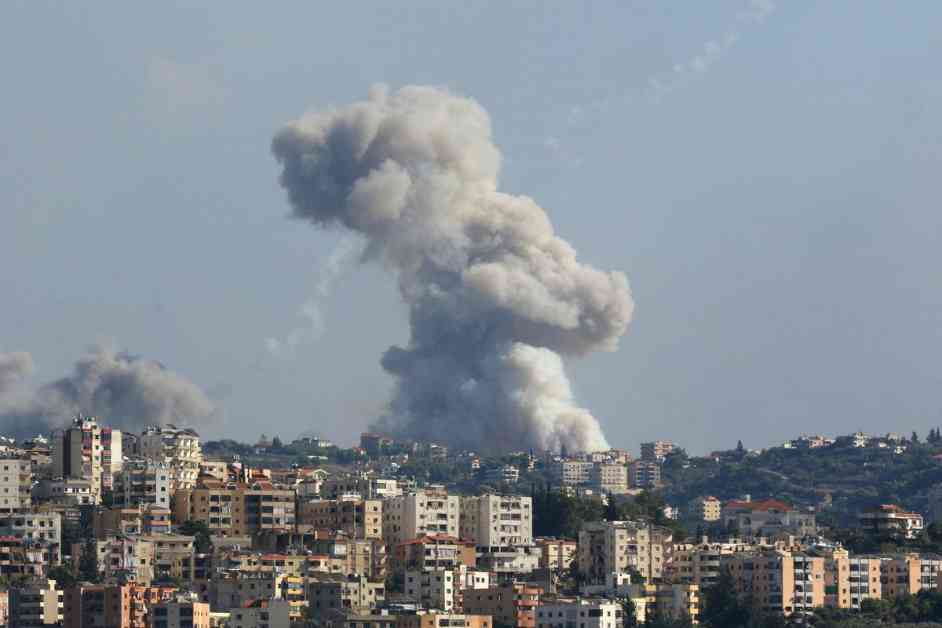Israel’s Military Actions Against Lebanon: The Complex History and Current Conflict
Israel’s recent deadly attack on Lebanon, resulting in the deaths of around 500 people, has once again brought the long-standing tensions between these two neighboring countries to the forefront. The conflict between Israel and Lebanon dates back to the establishment of Israel as a state in 1948, which was met with hostility from Lebanon and other neighboring nations. Since then, there have been numerous instances of cross-border violence and conflicts, with Hezbollah emerging as a significant player in the region in response to Israeli occupation in southern Lebanon during the civil war in the 1980s.
The Current Situation: Escalating Violence and International Concern
The recent escalation in violence began with Israel’s bombing of the Gaza Strip in response to Hamas’s actions. This led to a series of retaliatory attacks, with Hezbollah joining in by firing rockets into Israel in support of the Palestinian movement. The conflict has since spiraled out of control, resulting in the deaths of thousands of people and displacing many more from their homes. The international community has expressed grave concern over the situation, with UN Chief Antonio Guterres calling for calm and denouncing countries that are escalating tensions and waging war with impunity.
Israeli Prime Minister Benjamin Netanyahu has stated that the ongoing military actions against Lebanon are aimed at ensuring the safety of Israeli citizens in the northern part of the country. Tens of thousands of Israelis were forced to evacuate their homes due to security concerns, and Israel is determined to push Hezbollah forces back from the border to allow for their return. However, the extensive bombing campaign by Israel has resulted in significant civilian casualties and widespread destruction across Lebanon, with Hezbollah vowing to continue fighting until a ceasefire agreement is reached.
The Root Causes of the Conflict: Historical Animosity and Regional Dynamics
The animosity between Israel and Lebanon is deeply rooted in their complex history and the broader dynamics of the Middle East. Lebanon, like many other Arab nations, has long opposed the presence of Israel in the region and has supported Palestinian resistance movements. Hezbollah, with its strong ties to Iran, has emerged as a key player in Lebanon’s efforts to resist Israeli influence and occupation. The group’s actions are seen as a response to what they perceive as Western-backed Israeli aggression in the region.
The withdrawal of Israeli troops from Lebanon in 2000 did little to ease tensions, as conflicts continued to erupt periodically, culminating in a major flare-up in 2006 that resulted in heavy casualties on both sides. The situation has only worsened in recent years, with Israel’s military actions in Gaza leading to further violence and retaliation from Hezbollah. The current escalation in violence is a manifestation of the deep-rooted animosity and ongoing power struggles in the region.
In conclusion, the ongoing military actions between Israel and Lebanon are a stark reminder of the volatile nature of the Middle East and the complex web of historical grievances and political dynamics that fuel these conflicts. The international community must work together to de-escalate tensions and find a peaceful resolution to the ongoing violence before it spirals out of control and leads to even greater loss of life and destruction.












